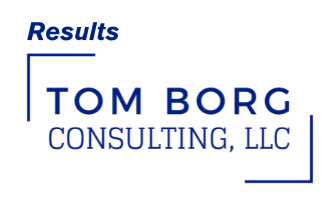
Effective leadership is more than just strategy and vision. Leaders today must also master emotional intelligence (EQ) to inspire teams, make sound decisions, and foster growth. Emotional quotient assessments are powerful tools for developing these skills, offering actionable insights to enhance leadership abilities.
Research indicates that the companies of leaders with high Emotional Quotients (EQ) fare much better during good times as well as tough times.
This article explores how small business owners, managers, and executives can use EQ assessments to transform their leadership.
What Is an Emotional Quotient Assessment?
An emotional quotient assessment evaluates an individual’s ability to recognize, understand, and manage their emotions and those of others. These assessments measure critical areas, including emotional awareness, empathy, adaptability, and interpersonal skills.
Unlike traditional personality tests, EQ assessments focus on practical capabilities that directly impact workplace dynamics, collaboration, and leadership effectiveness.
The Impact of Emotional Intelligence on Leadership Success
Leaders with strong emotional intelligence drive higher employee engagement, reduce turnover, and inspire trust. Here’s how EQ positively influences leadership:
- Improved Communication: Leaders with high EQ express ideas clearly and understand others’ perspectives, reducing misunderstandings.
- Better Decision-Making: Emotional awareness allows leaders to assess situations calmly and make decisions that balance logic and empathy.
- Stronger Team Morale: By recognizing team members’ emotions, leaders can address concerns, motivate employees, and cultivate a positive culture.
Investing in EQ assessments can provide leaders with measurable insights into these areas, paving the way for actionable improvement.
Key Areas Assessed by Emotional Quotient Tools
EQ assessments typically focus on five critical domains, all vital for leadership success:
- Self-Awareness: Recognizing personal emotions and their impact on actions and decisions.
- Self-Regulation: Managing emotional responses to maintain professionalism in challenging situations.
- Motivation: Staying focused on goals despite setbacks, driven by intrinsic values rather than external rewards.
- Empathy: Understanding and addressing the emotions of team members to build strong relationships.
- Social Skills: Navigating complex interpersonal dynamics to foster collaboration and resolve conflicts effectively.
Understanding these domains helps leaders identify their strengths and growth opportunities, enabling strategic development.
How Emotional Quotient Assessments Foster Leadership Development
Tailored Feedback for Personal Growth
EQ assessments provide specific, actionable feedback. Leaders gain clarity about their emotional strengths and areas needing improvement, allowing for targeted skill development.
Enhanced Conflict Resolution Skills
Emotionally intelligent leaders manage conflicts constructively. EQ assessments reveal tendencies and equip leaders with techniques to handle disagreements diplomatically.
Increased Adaptability in Leadership
Rapid changes in business demand leaders who adapt quickly. EQ assessments evaluate flexibility, helping leaders embrace change and guide their teams confidently through transitions.
Real-World Benefits for Businesses
Improved Employee Retention
Employees are more likely to stay with companies where leaders demonstrate empathy and understanding. EQ-trained leaders foster trust, reducing costly turnover.
Higher Productivity and Collaboration
Emotionally intelligent leaders encourage open communication, leading to cohesive teams and improved performance. Teams led by EQ-strong managers often exceed productivity goals.
Resilience During Economic Challenges
Businesses face inevitable challenges. Leaders with high EQ inspire confidence, making teams more resilient and adaptable during turbulent times.
Steps to Integrate Emotional Quotient Assessments Into Leadership Training
1. Choose the Right EQ Assessment Tool
Research various options to find one that aligns with your organization’s goals. Popular tools include the EQ-i 2.0 or MSCEIT.
2. Incorporate Assessments Into Leadership Development Programs
Use EQ assessments alongside workshops, coaching sessions, or performance reviews to ensure continuous learning and application.
3. Provide Tailored Coaching Based on Results
Partner with EQ experts or consultants to deliver customized guidance, helping leaders turn assessment insights into tangible progress.
4. Measure and Track Progress
Reassess EQ periodically to monitor improvements and adjust development strategies as needed.
Common Myths About Emotional Intelligence and Leadership
“EQ Is Just a Soft Skill.”
While often categorized as a soft skill, emotional intelligence directly influences measurable business outcomes like ROI, employee engagement, and customer satisfaction.
“Leaders Are Born, Not Made.”
EQ proves that leadership skills can be developed through self-awareness and targeted growth efforts. Assessments are the first step in this transformative journey.
“EQ Doesn’t Matter in Numbers-Driven Roles.”
Even in technical or data-heavy positions, EQ drives collaboration, innovation, and problem-solving, essential for organizational success.
Start Transforming Your Leadership Today
Elevating leadership requires more than technical skills—it demands emotional intelligence. Emotional quotient assessments offer a clear roadmap for growth, helping leaders foster stronger connections, make sound decisions, and inspire their teams.
Ready to Transform Your Leadership Skills?
Investing in emotional intelligence through an EQ assessment is more than a leadership enhancement—it’s a business strategy. If you’re ready to unlock your full potential and lead with impact, contact us today.
📞 Call 734-812-0526 to learn more about our Business Consulting Services. Let’s build a stronger, more emotionally intelligent leadership team together.

Learn more about my system I use to grow and strengthen your leadership team.
